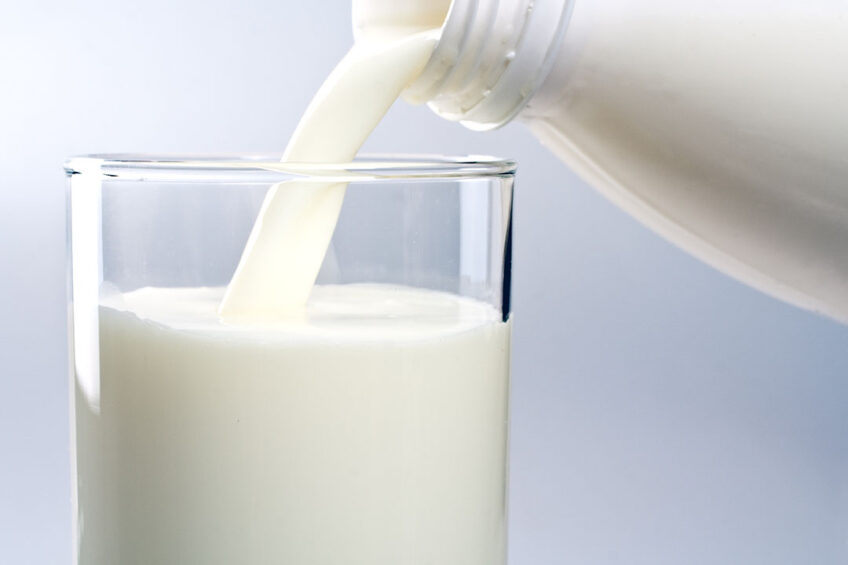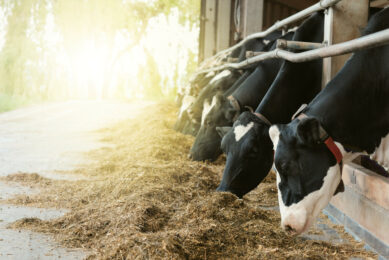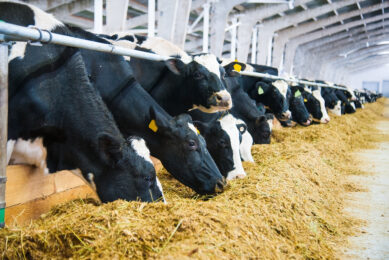Canada leaves dairy out of the ‘good food guide’

Dairy farmers in Canada have been dealt another harsh blow as the country’s recently released ‘good food guide’ left dairy produce off the recommended list and advised on less meat consumption.
The latest Canada Food Guide, overhauled after 12 years, encourages consumers to “eat plenty of vegetables and fruits, whole grain foods and protein foods” and to “choose protein foods that come from plants more often.”
This is the latest blow to Canadian dairy farmers who are still reeling from the effects of the government’s decision to agree the new USMCA trade deal with the US that allows American farmers access to 3.6% of Canada’s dairy market.
Unrest among the agricultural industry
Produced in Ottawa, the guide dramatically revised its advice to Canadian consumers directing them more to plant based diets and steering them away from meat and dairy. It states: “Choose foods with healthy fats instead of saturated fat” and “limit highly processed foods. If you choose these foods, eat them less often and in small amounts.” It went on to say “make water your drink of choice.” For over 40 years this food guide has advised consumers to focus on a diet of specific ingredients from 4 food groups. It is a highly sought after publication produced by the federal government but the new one has created some unrest among the agricultural industry. In the new guide the 4 standard food groups are now gone, there are no longer ‘meat’ or ‘dairy’ sections and servings reduced. Instead, the guide shows an image of a plate, half of it covered with fruits and vegetables, and the other half divided into whole grains and ‘proteins’, which is a new category that contains meat, dairy and plant-based foods such as chickpeas and tofu.
Also read: Should Canada phase out supply management?
Not based on latest evidence
Canada’s Health Minister, Ginette Petitpas Taylor, said: “We want to make sure Canadians have access to the best information with the food guide, the best information based on the best science out there, and science that’s not influenced by industry.” However, Dairy Farmers of Canada (DFC) said it remained concerned that the updated food guide does not reflect the most recent and mounting scientific evidence available and insisted there is abundant research that demonstrates that milk products with various fat content can be a part of healthy diet. Isabelle Neiderer, director of nutrition and research at Dairy Farmers of Canada, said: “While the food guide has changed, milk products continue to play a valuable role in helping Canadians make healthy-eating decisions on a daily basis. “The scientific evidence supporting the nutritional benefits of milk products in the promotion of bone health and prevention of chronic diseases, for instance, is stronger than ever, and new evidence continues to accumulate. “Current and emerging scientific evidence does not support a continued focus on lower fat milk products as it reveals that milk products that contain more fat are not associated with harmful health effects and could even provide benefits,” she said.
Also read: Price fluctuations decrease in dairy market
Important nutrients in milk
DFC added that research continues to confirm that milk proteins rank as some of the highest quality available, but the nutritional benefits of milk products go far beyond their protein content. It highlighted that milk products are a key source of 6 of the 8 nutrients that most Canadians already fall short of, namely calcium, magnesium, zinc, vitamin A, vitamin D, and potassium. Representatives from the meat industry, however, denied that the guide recommends eating less meat.
Mary Ann Binnie, nutrition consultant with the Canadian Meat Council, said: “I think it’s a misinterpretation. They’re encouraging the plant-based protein, but not at the expense of meat.”
Join 13,000+ subscribers
Subscribe to our newsletter to stay updated about all the need-to-know content in the dairy sector, two times a week.











